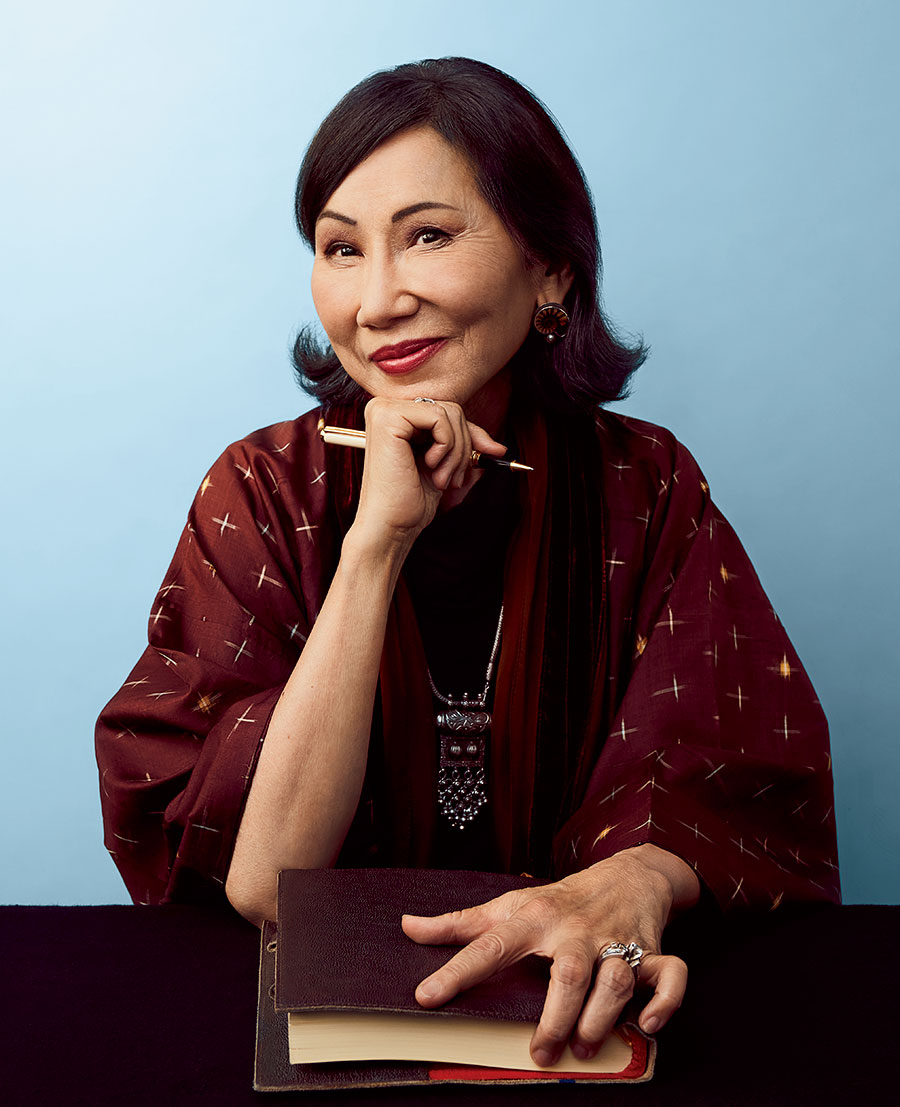The Joy Luck Club has become the great Chinese American novel. What were the pros and cons of authoring the first big commercial Chinese American literary hit?
I was cast in the limelight as being some sort of expert about Chinese Americans or immigrants or mothers and daughters. With that limelight comes a responsibility put on me to speak for the community of Asian Americans, or all people in Asia, which is impossible. I had to constantly talk about the fact that Asian Americans are not a homogenous group. We are united by commonalities and needs within communities, but we can be very different in how we conduct our lives.
You’ve dressed up in S&M-style leather to perform with the literacy fundraising supergroup the Rock Bottom Remainders. How did that happen?
I used to sing “Bye Bye Love,” but I don’t have a good voice. After our first concert, our musical director, Al Kooper, said, “I picture Amy wearing leather boots and fishnet stockings, wielding a whip and singing ‘These Boots Are Made for Walkin’.’ ” And I said, “That is such a sexist thing to say,” but I realized this wasn’t about me trying to prove I had a good voice. This was about being funny, because this plays against who most people think I am. I had to go to these leather shops and ask for whips and collars. So part of this song does require me to tell the boys to bend over, and then I get to whip them.
In your latest books and your Netflix documentary [Amy Tan: Unintended Memoir], you talk about your mom’s struggle with mental health and your own struggles. Why is it important to get these topics out in the open — especially in the Asian American community?
My mother was always very open about anything. Anything I said about her was fine. So that kind of openness has been my template in life. I am part of the Pacific Asian Network. It’s like a United Way for different Asian groups that also helps combat stereotypes about Asians as model minorities: the idea that they have no problems, no mental health issues, no children who are overweight, no poverty, no elder abuse. Those are all myths.
What books have inspired you?
Love Medicine by Louise Erdrich. It’s a set of short stories that takes place in a community. In a way, it’s like The Joy Luck Club. Also Amy Hempel’s Reasons to Live. In talking to writers, she says you always want to look for the news: not like what we read in the paper, but something said differently, or a perspective you would not hear anywhere else.
You have an awesome master class on fiction, memory, and imagination. What are some of the biggest lessons you wish you could have told your younger self?
I gave up certain things early in life because I didn’t think it was perfect. If you have any desire to publish, you have to get over the notion that you could ever do something that was absolutely perfect, and you should count on getting rejections. And you might have to encounter that many times before you find the kind of reader that finds your work appealing. So in the [master class], I include my rejection letters, something people love to see.
Tan will receive the Carl Sandburg Literary Award from the Chicago Public Library Foundation on Nov. 2. View later at cplfoundationawards.org.



